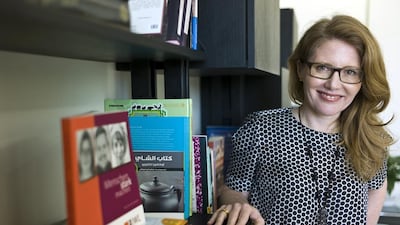ABU DHABI // Special needs pupils are not getting the help they need at school because their parents are sending nannies with them, not trained teaching assistants, to save money.
All schools are required by law to cater for pupils with mild to moderate special needs, but families have to pay the support costs in private schools.
“You have an untrained shadow teacher who can’t really switch off his or her role and is still the maid or the nanny in the classroom,” said Renate Baur-Richter, programme manager at the Services for Educational Development, Research and Awareness organisation. “This doesn’t really help the student, the family, the teacher, the class or the entire school.”
The organisation, founded in 2014 under the patronage of Sheikha Alyazia bint Saif Al Nahyan to promote inclusion of people with disabilities, has linked up with the British University in Dubai to offer a shadow teacher qualifications course.
“The best solution would be put more teachers in the classrooms and put a co-teacher in the classroom so no shadow teachers are needed,” Ms Baur-Richter said.
“But you also have to have the socio-economic situation of the families in mind, since they have to pay, so you have to work with the resources they have.”
Jeff Evans, managing director of Learning Key Educational Consultancy, said: “Recruiting and employing a trained special educational needs assistant will require a higher salary than the additional fees that private schools are permitted to charge parents for extra support.”
Abu Dhabi Education Council lets private schools charge parents up to 50 per cent more to cover special education.
“However in many schools, even in the high-fee range, this will not cover the cost of employing a skilled assistant or teacher,” Mr Evans said. “So a child with mild to mid-level needs may have in-class support that is not really suitable.
“And in some cases, the learning and welfare of other class members and the child with additional needs are affected.”
Hanadi Dar, from Dubai’s Camali Clinic, a child and mental health service, supplies trained and some university-educated shadow teachers for parents.
But the Dh8,500 monthly cost often scared off clients.
“I have a file full of parents saying, ‘the price is too much and I can’t go for that’,” said Ms Dar. “But the shadow needs to make the child independent, to work towards independence, to learn independent living skills.”
“What needs to be changed is that shadow teacher should be a qualification rather than just a job for the jobless,” said Prof Eman Gaad, dean of the British University’s faculty of education and head trainer at its partner association.
rpennington@thenational.ae

